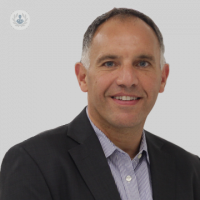What are the most common mental health disorders in children?
Written in association with:According to the World Health Organisation (WHO), the prevalence of mental health disorders amongst children ranges anywhere between 10 and 20 per cent. Children under the age 5 have are far more likely to present behavioural disorders, developmental disorders, and language delays. Between the ages of 6 and 11, behavioural disorders and learning disorders are more prevalent, particularly ADHD and dyslexia. Most disorders are diagnosed during this age range.
Behavioural disorders, along with anxiety and mood disorders (depression), are more common between the ages of 12 and 18. There is a greater incidence of behavioural disorders in boys and anxiety in girls, regardless of age. In this article below, esteemed clonsultant child and adolescent psychiatrist, Dr Jon Goldin, explains more.

What should parents look out for?
Mental health disorders are often overlooked or not diagnosed sooner on because parents tend to confuse the first signs of psychological problems with benign behavioural problems due to the child’s age. It is generally assumed that certain behaviours are normal early stages of development.
However, warning signs appear at a certain age and manifest as symptoms or a set of behaviours that could be indicative of a psychological disorder. Consulting a medical professional if there is any concern is greatly advised.
If prevention is fundamental, what is advised?
Therapeutic response is better if treatment is able to begin as early as possible after the warning signs start to appear and in the early stages of development of the disorder. Prevention, i.e. anticipation, is crucial in the mental health of children and adolescents. If parents notice a warning signal, the first thing they should do is go to their paediatrician who should assess the importance and make a referral to a specialised service.
Are there services for the parents of children with behavioural disorders?
One of the main services offered in child and adolescent mental health is family care. Parents need guidance and educational training because it can be extremely stressful when a child requires specialised support.
The importance of raising awareness
As our society is in a state of constant change, now more than ever it is important that we ensure our children are prepared with adequate educational and developmental guidance. Thankfully, many parents are fully aware of the importance of their role in their child’s upbringing.
The majority of parents provide sufficient care and support in the educational and personal development of their children and, should any psycho-educational problem arise, they do seek effective assistance. Furthermore, we now have access to such a wealth of scientific knowledge that we are able to anticipate and prevent behavioural and psychological disorders in children. It is essential that this information reaches families in order to raise awareness about these types of problems that can affect children and impact their future.
To schedule in an appointment with Dr Jon Goldin, simply head on over to his Top Doctors profile today.


